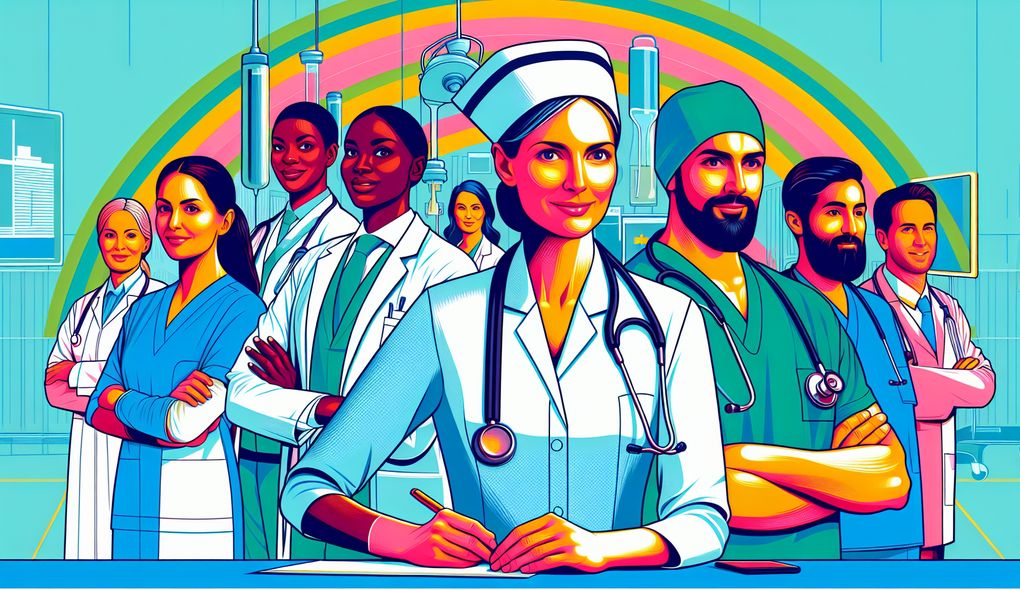What is your approach to assessing risks and developing improvement strategies?
INTERMEDIATE LEVEL

Sample answer to the question:
When it comes to assessing risks and developing improvement strategies, my approach is thorough and systematic. I start by identifying potential risks and analyzing their potential impact on patient care outcomes. Next, I collaborate with the interdisciplinary healthcare team to gather input and insights from different perspectives. This helps me develop a comprehensive understanding of the risks and their implications. Once the risks are identified, I prioritize them based on their severity and likelihood of occurrence. This allows me to allocate resources and attention accordingly. To develop improvement strategies, I conduct research and stay up-to-date with evidence-based practices. I also leverage my strong communication and leadership skills to engage the team in brainstorming sessions and collaborative decision-making. By involving everyone, we ensure that the improvement strategies are practical, feasible, and effective. Lastly, I regularly evaluate the outcomes of the strategies implemented and make adjustments as needed to continuously improve patient care.
Here is a more solid answer:
When it comes to assessing risks and developing improvement strategies, my approach is founded on critical thinking and the effective utilization of healthcare informatics and technology. I begin by gathering relevant data and information using electronic health records and other technological tools. This allows me to identify patterns, trends, and potential risks more efficiently. I then apply my critical thinking skills to analyze the data and assess the impact of the identified risks on patient care outcomes. By leveraging evidence-based practice guidelines and research findings, I develop improvement strategies that are tailored to address the specific risks identified. Additionally, I collaborate with the multidisciplinary healthcare team, utilizing communication tools and platforms to facilitate efficient communication and collaboration. This ensures that the improvement strategies are aligned with the expertise and perspectives of the team members. To evaluate the effectiveness of the strategies, I utilize healthcare informatics tools to track and measure key performance indicators, allowing for timely identification of any adjustments or modifications that may be necessary.
Why is this a more solid answer?
The solid answer expands on the basic answer by providing specific examples of how the candidate utilizes critical thinking and healthcare informatics and technology in their approach to assessing risks and developing improvement strategies. It highlights the candidate's ability to gather and analyze data efficiently, utilize evidence-based practice guidelines, and track key performance indicators using healthcare informatics tools. Additionally, it emphasizes the importance of collaboration and communication with the multidisciplinary healthcare team in developing effective improvement strategies. However, the answer could still benefit from more details on how the candidate has applied these skills in past experiences.
An example of a exceptional answer:
Assessing risks and developing improvement strategies is a multifaceted process that requires a comprehensive and proactive approach. To effectively assess risks, I utilize my critical thinking skills to anticipate potential risks and identify hidden or emerging ones. I actively engage in continuous learning to stay up-to-date with the latest advancements in healthcare informatics and technology, which allows me to leverage tools such as data analytics, artificial intelligence, and predictive modeling. By integrating these technologies into my risk assessment process, I can identify patterns and trends that may not be immediately apparent. Additionally, I draw upon my extensive experience in healthcare leadership roles to facilitate interdisciplinary collaboration and communication. This ensures that improvement strategies are not only evidence-based but also consider the unique perspectives and expertise of all team members. I also prioritize ongoing evaluation and feedback, utilizing both qualitative and quantitative data to assess the effectiveness of improvement strategies. This iterative approach allows for continuous improvement and optimization of patient care outcomes.
Why is this an exceptional answer?
The exceptional answer goes above and beyond by highlighting the candidate's proactive and comprehensive approach to assessing risks and developing improvement strategies. It showcases their ability to anticipate potential risks and leverage advanced healthcare informatics and technology tools to identify hidden or emerging risks. The answer also emphasizes the candidate's extensive experience in healthcare leadership roles, indicating their ability to facilitate interdisciplinary collaboration and effectively integrate the perspectives and expertise of the healthcare team. Furthermore, the answer highlights the candidate's commitment to ongoing evaluation and feedback, demonstrating their dedication to continuous improvement and optimization of patient care outcomes. Overall, the exceptional answer provides a more in-depth understanding of the candidate's approach and skills in assessing risks and developing improvement strategies.
How to prepare for this question:
- Familiarize yourself with the latest advancements in healthcare informatics and technology
- Stay up-to-date with evidence-based practice guidelines and research findings in your field
- Develop your critical thinking and problem-solving skills through relevant training or experiences
- Practice effective communication and collaboration with interdisciplinary healthcare teams
- Highlight any previous experiences where you have successfully assessed risks and developed improvement strategies
What are interviewers evaluating with this question?
- Critical thinking and problem-solving capabilities
- Familiarity with healthcare informatics and technology

